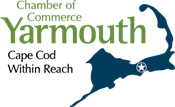By Bill O’Neill
Peter Muise has a little game he likes to play. The CEO of First Citizens’ Federal Credit Union asks people to name as many Cape Cod museums as they can.
“People come up with the obvious ones – Heritage Museums & Gardens, the JFK Hyannis Museum,” he says. “They come up with about a dozen.”
Then he tells them about the Cape Cod Museum Trail, a First Citizens’ online guide that features more than 60 museums.
“It blows them away,” he says. “There is a huge amount of history and culture that folks are just not aware of.”
The goal of the Museum Trail is to make residents and visitors more aware of the Cape’s museums and their events. The Museum Trail has its own website and Facebook page and an email newsletter that lists upcoming events.
The website has descriptions and contact information for each museum and a built-in Google map that allows you to get directions from any starting point.
“About three years ago, Glenn Ritt of Ritt Communications came to me with an idea about getting First Citizens’ involved with museums,” says Muise. “It was a brilliant idea that has evolved as we saw the capabilities of what a Museum Trail concept could be. All the information about events that are scheduled at these museums is available to anyone who wants to sign up for that information.”
Muise points out that as a federal community-chartered credit union, “We have community in our charter. It’s the basis of what we do. We live, work and worship within the community that we serve. We’re extremely community-oriented.”
So the concept of the Museum Trail appealed to him, but he says, “Our vision is that it’s bigger than just a couple of communities. It’s bigger than just Cape Cod.”
The Museum Trail website is a handy go-to for Cape residents looking for something to do on a day off, but Muise points out that First Citizens,’ which promotes the trail on its website, has a catchment area that includes Bristol, Norfolk and Plymouth counties.
It’s also a great service, he adds, for summer and weekend vacationers. “It might be someone from Philadelphia or Michigan who is coming in the second week in July and wants to know what is available,” he says. “Where do they go to get some of this information? Now there is an opportunity for that.”
The credit union’s marketing department administers the website, at no cost to participating museums, most of which are too small to have their own marketing staff.
“It gives them this huge awareness-marketing opportunity,” he says. “It doesn’t cost them anything to join except for time. They have a responsibility to make us aware of their events, and we’ll be happy to publicize them. Your best results will be based off of your active participation.”
The project isn’t entirely altruistic, Muise says, as it’s helpful in building brand recognition for First Citizens’ with the museums’ staff, volunteers and visitors.
“Later on, when somebody needs a car loan, or somebody needs a mortgage or commercial loan, maybe they’ll think of us,” he says. Muise also sees the possibility that that some museums will use First Citizens’ as a credit union for their employees.
The credit union’s involvement is also a benefit to its existing members, who get a discount at several of the museums. “Show your card and get some value at the museum, whether it’s reduced admissions or something in the souvenir shop,” he says.
As a business opportunity for First Citizens, ’he says, “I can’t tell you that it’s exactly a financial quid pro quo, but when you add in the intangibles of marketing and business relationships, there’s tremendous value there.”
Executive directors or other representatives of the museums meet about four times to critique the trail’s progress and plan future development. Muise calls it a great networking opportunity for a group of museums of varying sizes, locations and missions. He envisions that these connections could lead to museums sharing everything from shelving equipment to exhibits.
Muise says that many of the museums survive primarily on admission and memberships. The network meetings “give me a chance to say to Bob Dwyer at the Cape Cod Museum of Natural History or Sarah Johnson at the Cahoon Museum of American Art, ‘What can we do to help you? What can we do to get more people to visit?’”
One refinement in the works is to have the website provide a concierge-type service. If you have an interest in modern art or maritime history or sea captains’ houses, the site could put together a map of must-see locations.
In the meantime, First Citizens’ promoted Cape Cod Museum Month (with a variety of deals and discounts) the past two Septembers and is organizing the first Festival of Museums on May 6 at the Hyannis Youth and Community Center. Museums and galleries will have displays, giving people a taste of the Cape’s diverse offerings.
First Citizens’ has offices in 10 Southeastern Massachusetts towns, with 80,000 members and assets over $708 million. A Cape presence is nothing new for First Citizens,’ which has branches in Orleans, Hyannis, Mashpee and Falmouth. Muise says First Citizens’ is the largest automobile lender in Bristol and Barnstable counties.
“We do a lot of business on Cape Cod, so this is not my introduction to Cape Cod, but I do think it’s a great opportunity to support Cape Cod,” he says.
Muise grew up in Quincy and Weymouth and remembers taking school trips to the Abigail Adams birthplace in North Weymouth. Last fall, after the summer rush, Muise, who now lives in Marion and works out of the credit union’s administrative headquarters in Fairhaven, made it a project to take Friday treks to visit a Cape museum or two with his wife or other family members. “We had a wonderful time,” he says. “I want to visit them all.”
This article was published in the March 2017 issue of Cape & Plymouth Business.
First Citizens' Federal Credit Union maps the region's attractions in the Cape Cod Museum Trail





















